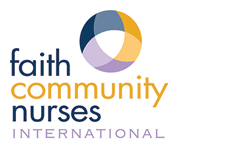Article Title
Implementing Faith Community Nursing Interventions to Promote Healthy Behaviors in Adults
Abstract
Purpose: To report the implementation of faith community nursing interventions to promote healthy behaviors in adults. Callaghan (2015) reported the development of this intervention, which was based on previous studies that support the importance of spiritual growth on the initiative and responsibility for self-care across the life span (Callaghan, 2003, 2005, 2006). The intervention also included strategies to increase self-efficacy of healthy behaviors. The results of three separate implementations of the health promotion intervention are presented in this report.
Procedures: Three health promotion programs were implemented over a five year period (2010 – 2015). These programs were offered for the following populations/settings: families consisting of adolescents, adults, and/or older adults in a faith community; nursing students in a university community; older adults in an urban community. The outcomes of the programs were measured by the Health-Promoting Lifestyle Profile II (HPLPII) scale using paired t-Tests to test the hypothesis that post-intervention scores would be higher than the pre-intervention scores.
Findings: The mean scores of participants in the health promotion programs all increased from pre-intervention to post-intervention. Significant differences were found in the nursing student and the older adult samples.
Conclusions: The results of these studies suggest that faith community nursing-led health promotion interventions that focus on spiritual growth as the foundation of health as well as use self-efficacy enhancing strategies can increase participants’ practice of healthy behaviors. These programs also give faith community nurses an opportunity to expand practice beyond the walls of their faith communities.
First Page
3
